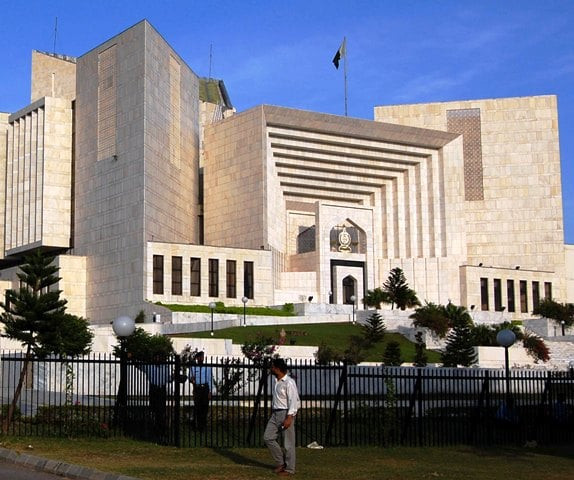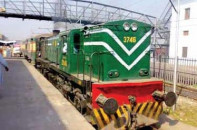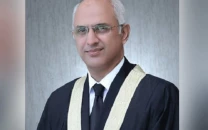Rental power plants violated contracts: SC
Mobilisation advances come under scrutiny due to non-import of machinery.

The Supreme Court of Pakistan (SC) on Wednesday questioned the release of mobilisation funds to the rental power plants (RPPs), given that the companies failed to meet their contractual obligation to import machinery.
A division bench headed by Chief Justice (CJ) Iftikhar Muhammad Chaudhry is hearing a suo motu case, coupled with two identical petitions, alleging corrupt practices in the awarding of contracts for RPPs.
Counsel for the Gulf Power Company, Ali Zafar, argued that the government signed an agreement with his client after reviewing its performance. After the contract was signed, he said, all machinery was transferred to Pakistan but the mobilisation advance was not paid and machinery at the site started to rust. After Zafar also claimed that investors in the Gulf Power Company “love” Pakistan, the CJ responded with a more pragmatic point of view: “An investor puts in money not for the love of a country but to earn a profit.”
Abdul Hafeez Pirzada, counsel for the Reshman and Techno E Power Company, said that his client fulfilled all preconditions and won the contract through open tender.
After winning the contract, the company was paid Rs4 billion as a mobilisation advance, Pirzada said, adding that Water and Power Development Authority (Wapda) praised the company in its report, which was presented in the court; however, no further funds were granted to the company.
Pirzada also complained that RPPs are not tax exempt, unlike independent power plants, claiming discrimination on this point. Despite this, however, his client is willing to return the mobilisation advance along with a 26% markup.
“As per the report, this project has the capacity of producing only five megawatts electricity as opposed to 200 megawatts,” the CJ said. Pirzada added that his client deposited Rs96 million as a financial guarantee and wanted to sign a new contract with the government. The cabinet, he said, is yet to decide on the matter.
Counsel for the National Electric Power Regulatory Authority (Nepra), Najamul Hassan Kazim, informed the court that the Reshman project was unproductive and as a result the contract was terminated.
The CJ questioned this decision: “How did Nepra determine this without the production of electricity? Negligence was shown at every stage.” Pirzada argued that the government earned Rs500 million because of the contract with his client, whereas the company purchased oil worth Rs411 million, money which came out of its own pocket. The CJ again pointed out that the RPPs’ machinery was not checked.
Counsel of Techno Energy Sahuwal Sialkot and Techno E Power Faisalabad, Raja Anwarul Haq, argued that the mobilisation advance was returned by his client following the court’s order. Pepco and Wapda misguided the court, he maintained, and his client had imported machinery.
“If you want to change the verdict, file a review appeal or a contempt of court application against those who misguided the court,” the CJ told him in response. Nepra’s lawyer said the site was visited and there was no machinery. A case is pending in the Islamabad High Court on the dispute. “We will not interfere in this matter then,” the CJ said, adjourning the case to Thursday (today).
Published in The Express Tribune, November 3rd, 2011.



















COMMENTS
Comments are moderated and generally will be posted if they are on-topic and not abusive.
For more information, please see our Comments FAQ